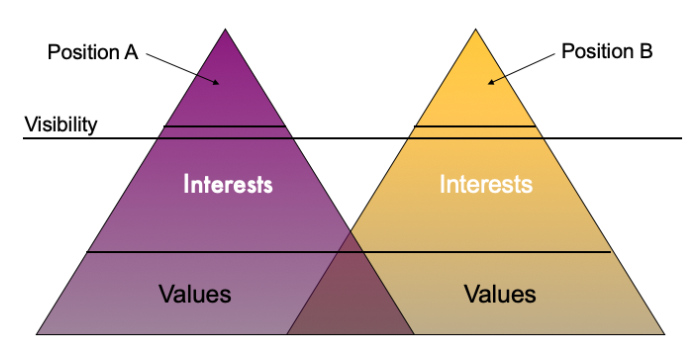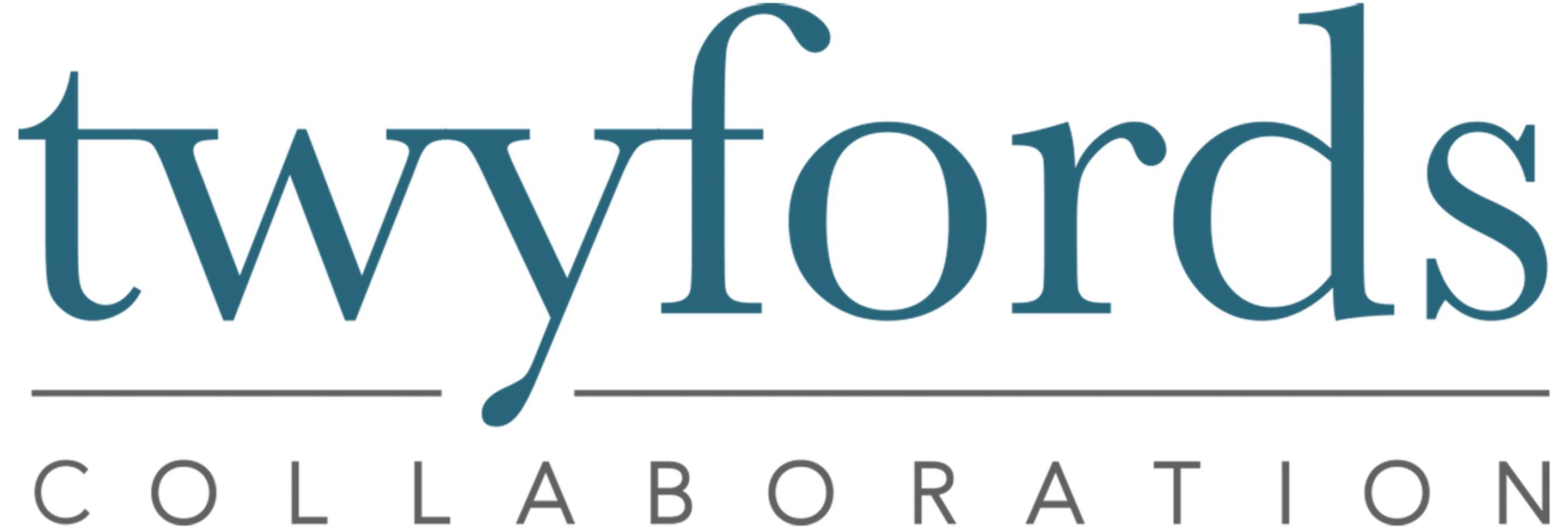“We need to have a difficult conversation with them”.
So said my client the other day when discussing their relationship with one of their key external stakeholders. And as they said it I could almost feel the tension in the air as they pondered that conversation. It felt difficult. It felt unpleasant. It felt dangerous.
Since the meeting I’ve been wondering why conversations that go a little deeper, that share a little more honestly, are seen to be ‘difficult’. I’d like my clients to see these situations as opportunities for learning, but it seems that we are all so entrenched in the model of debate and argument, winning and losing, wrong and right, that we can only see these discussions as adversarial.

I often turn to our simple ‘Values Triangles’ framework to help make this dynamic visible for clients. It depicts two people, person A and person B, each with a strongly held ‘position’ or idea. We can see that between the two positions there is a space – the distance between us. And our adversarial thinking tells us that, when confronted with an opposing idea, our task is to argue our case and convince them that our position is the right one. The space between us grows. We become more entrenched and polarised in our views.
The framework also shows us that our positions are supported by interests, the reasons we think this is best, which in turn are supported by our values, our fundamental beliefs and things we hold to be important. It also illustrates that different positions can be supported by similar interests and values, and that we are likely to have more in common than we first think.
When my client is imagining a difficult conversation, I suspect they are imagining being stuck at the top of the triangles, having an argument about right and wrong. Difficult? Yes. Inevitable? Definitely no.
With a different mental model, one based around learning, curiosity, exploration and relationship building, we can have these conversations differently. We can explore each other’s interests and values. We can together create alternative positions.
With some simple skills and processes we can get out of our adversarial thinking and start learning together about what makes each of us tick. That’s an interesting conversation rather than a difficult one.
